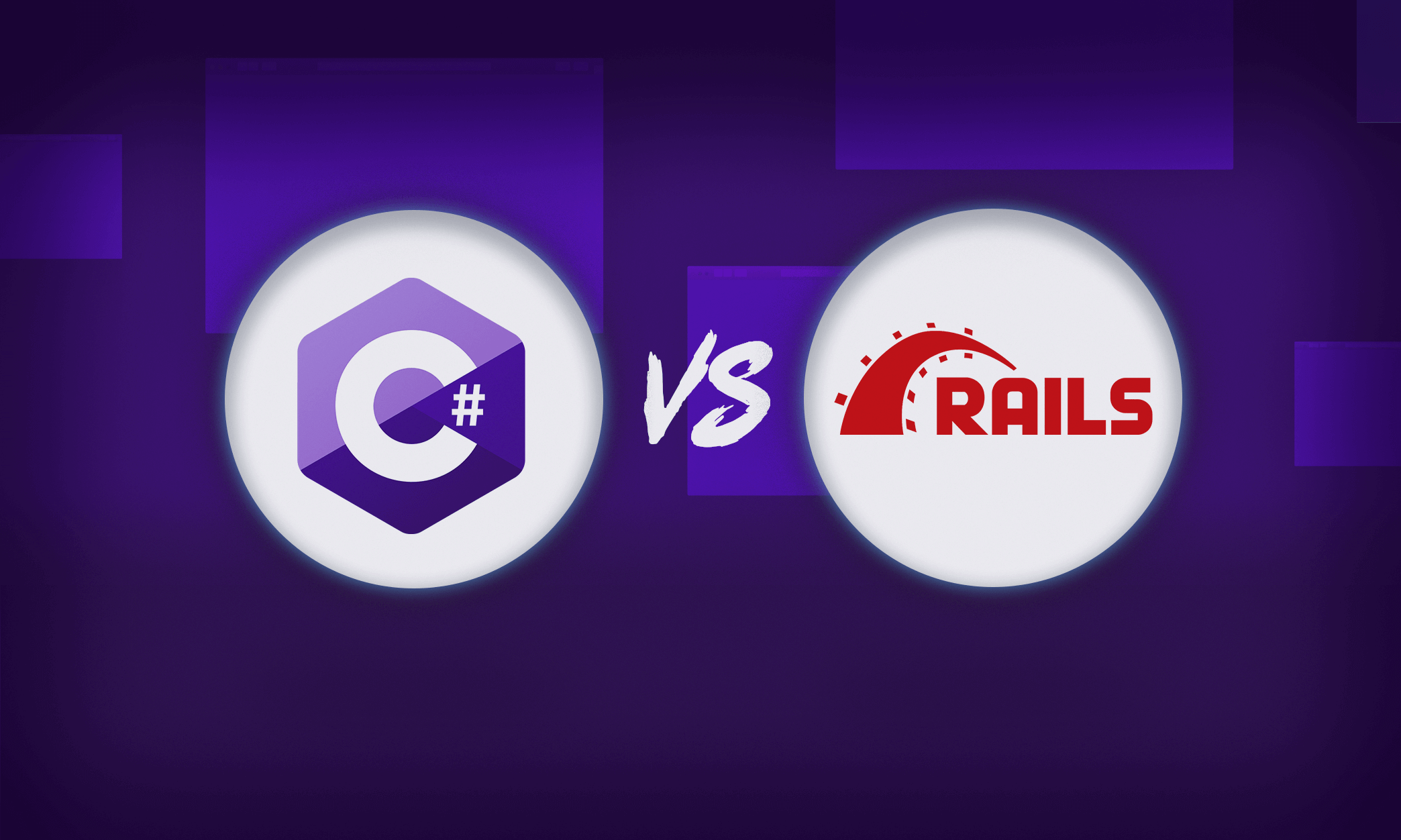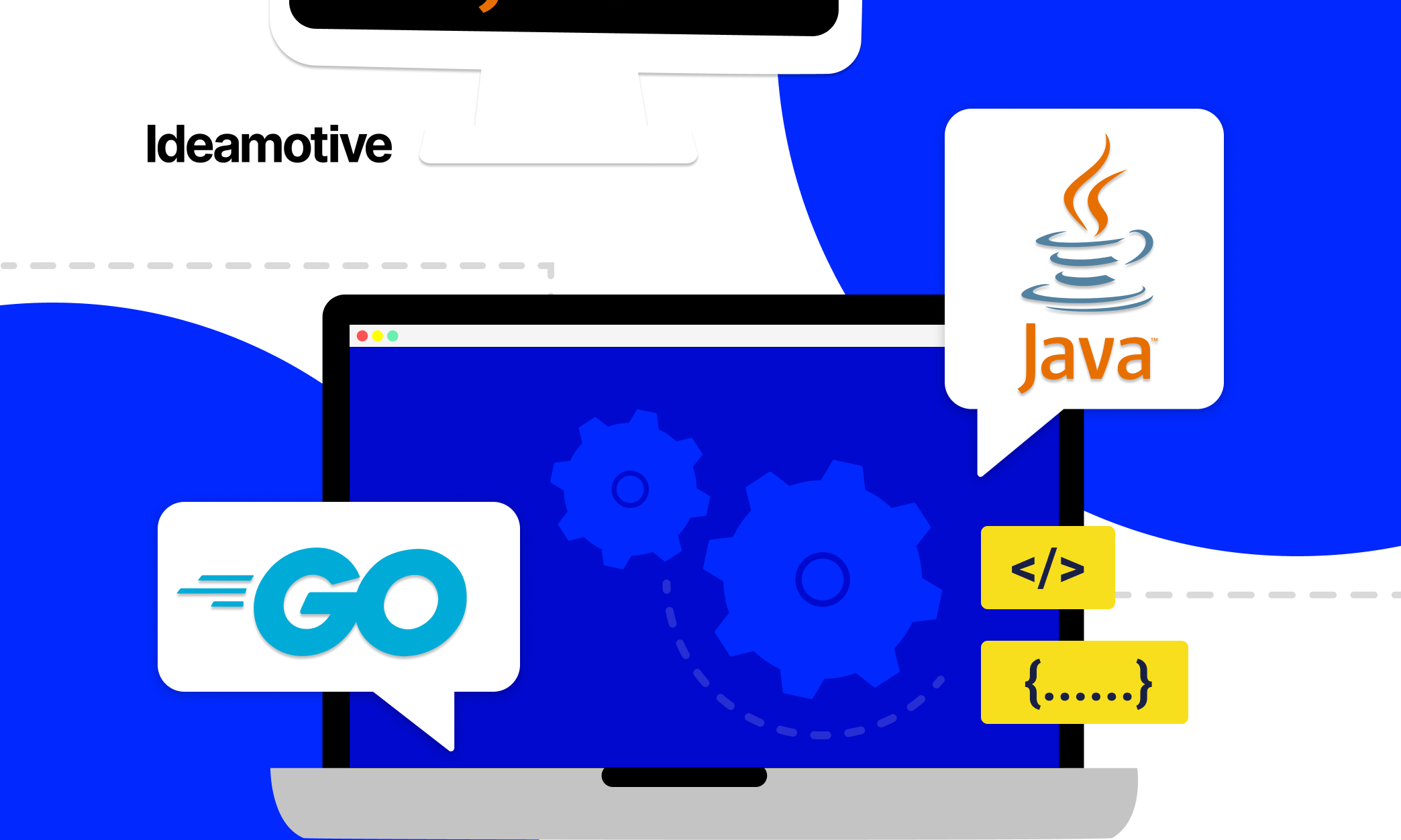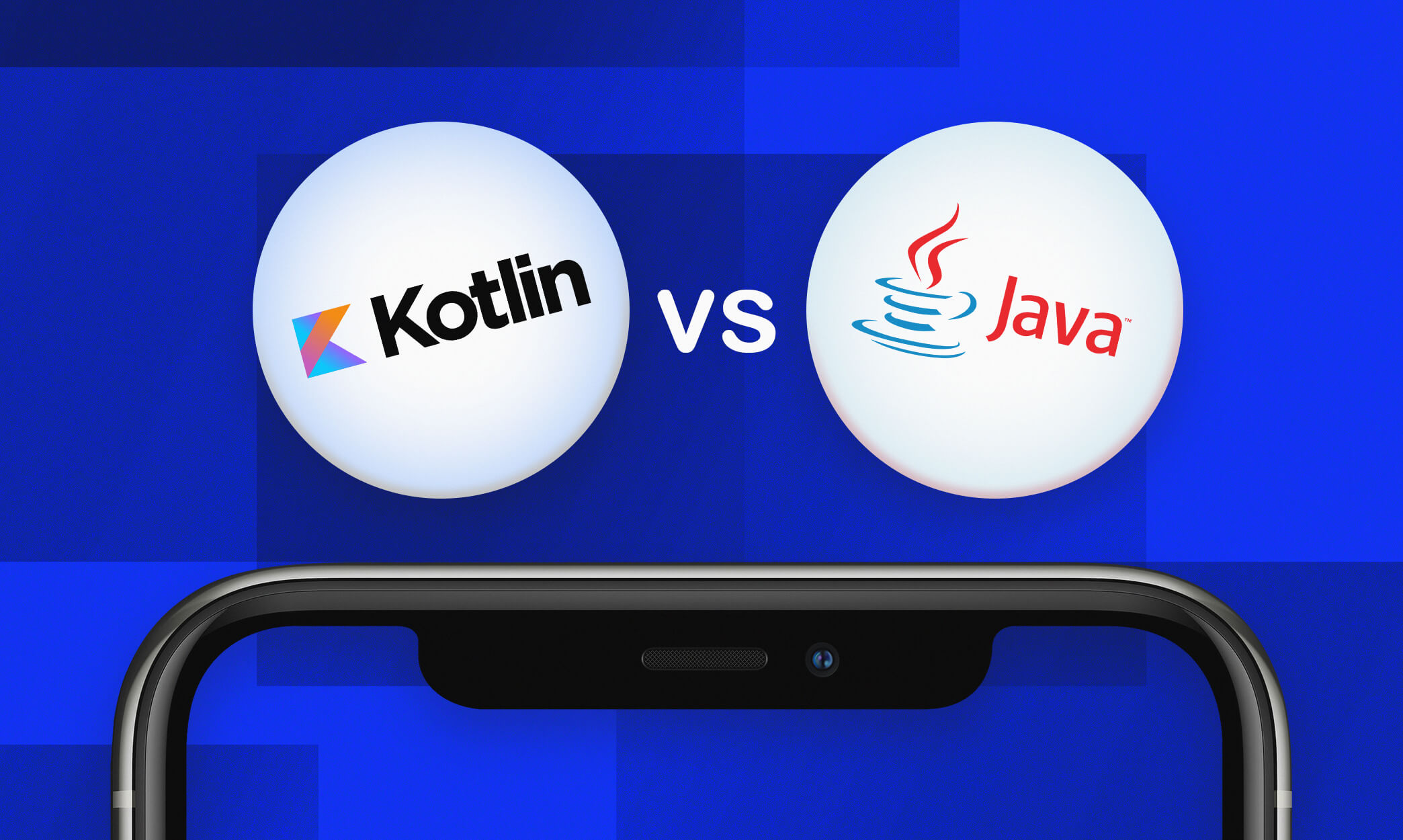C++ Or Java: Which Is Best For Your Company's Project?
Dec 13, 202211 min read

Robert Krajewski
Co-founder and CEO of Ideamotive. Entrepreneur, mentor and startup advisor.
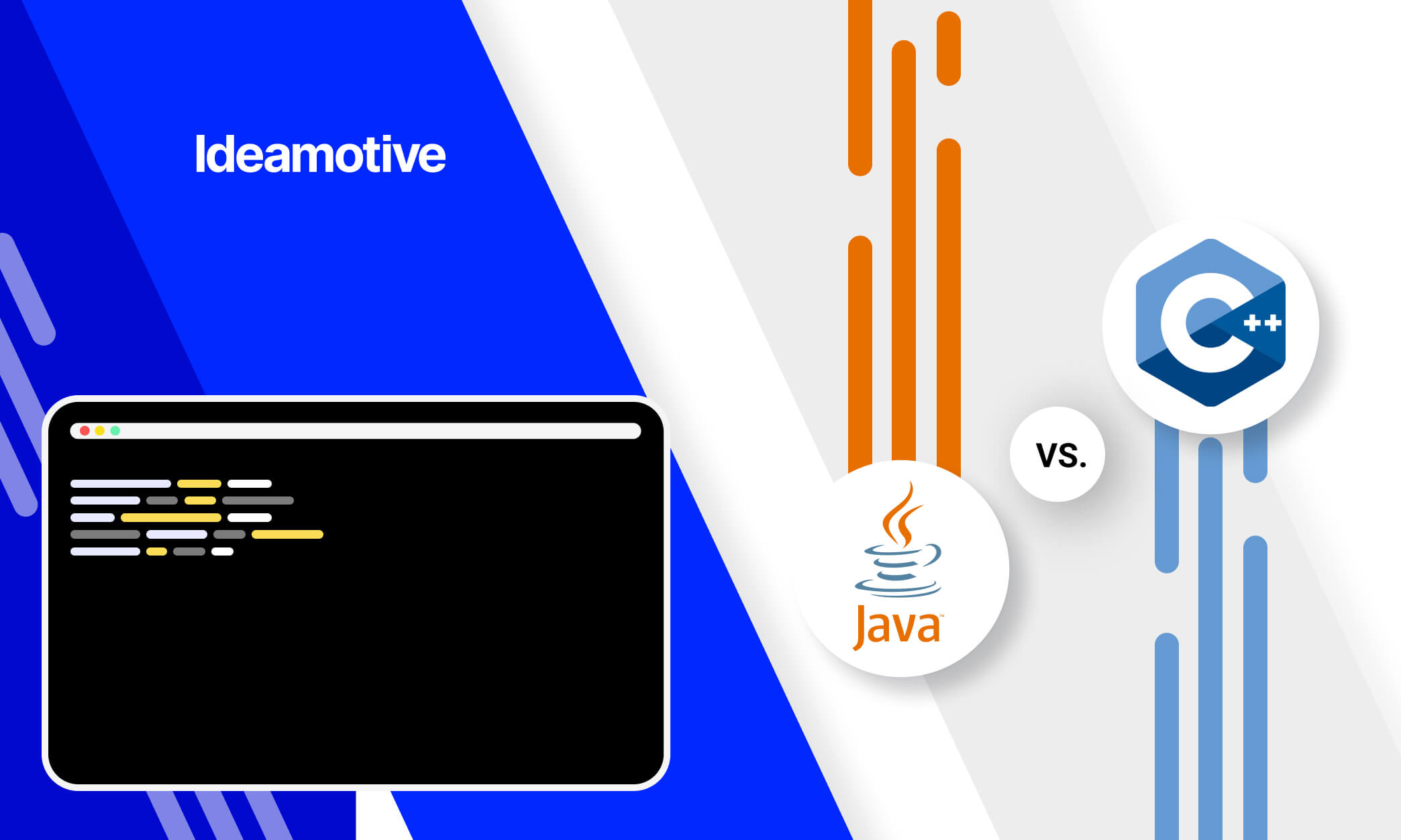
C++ or Java, which is faster? When one needs to carry out a project involving programming language, this is a regularly asked question, as Java and C++ are now common in competitive programming. Businesses often use these two programming languages because of some fantastic features. They share a similar syntax, enable object-oriented programming (OOP), and run some of the most powerful corporate systems on the market. Most C++ developers will tell you that converting a C++ project to a Java project is simple because the design and syntax are identical.
Despite their similarities, both languages are different. C++ is a compiled language, whereas Java is an interpreted language. Hence, we'll look at the critical distinctions between Java and C++.
What Is The C++ Language?
C++ (pronounced C plus plus) is an object-oriented computer language. It is part of the growth of the C family of languages by renowned computer scientist Bjorne Stroustrup. C++ was created as a cross-platform enhancement to C. And it provides programmers with more control over memory and system resources.
C++, sometimes called "C with classes," has object-oriented programming features. Some of these include using specified classes in the C programming language foundation. Additionally, C++ has been a precious language throughout time. Not just in computer programming but also in educating new programmers on how object-oriented programming works.
However, it does not just allow object-oriented programming but also procedural and functional programming. C++ can create many software, apps, websites, Graphical User Interfaces (GUIs), operating systems, and games. Thanks to its great flexibility and scalability.
Today, C++ is still highly popular for its considerable versatility. And this enables programmers to design applications that can operate on a wide range of operating systems or platforms. Despite being a high-level language, we may use C++ for low-level operations because of its strong interaction with machine language.
What Is The Java Language?
Java is a general-purpose, class-based, object-oriented programming language with low implementation requirements. It is a computer platform for developing applications. As a result, Java is quick, secure, and dependable. It is extensively utilized for Java application development in laptops, data centers, gaming consoles, scientific supercomputers, mobile phones, and other devices.
Java is still used to develop new, creative products and digital services for the future. Most current Java applications mix the Java runtime and application. Yet, many programs and even some websites will only operate if you have desktop Java installed. The website, Java.com, is for users who may still require Java for desktop applications, notably those aiming for Java 8.
Developers and users who want to learn Java programming should go to the dev.java website instead, while business users should go to oracle.com/java.
Now let's go over the similarities of both languages.
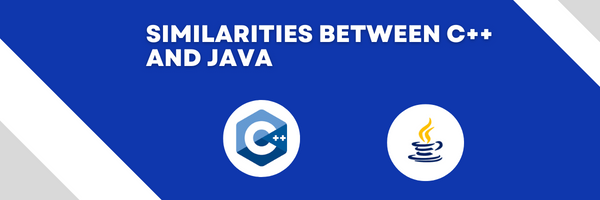
C++ and Java are well-known programming languages. Both differ in various ways, yet they also have several similarities. Here are a few:
1. Execution
Java source code, or a.java file, is transformed into bytecode, or a.class file, at compile time. At execution, the JVM (Java Virtual Machine) will import the .class file and use a translator to transform it into machine code. JVM will run the optimized code after compiling method calls (using the Just-In-Time (JIT) compiler).
As a result, Java is a compiled and interpretive language. In contrast, C++ runs code using just a compiler. The C++ compiler compiles the source code and turns it into machine code. While C++ is quicker than Java, it is not platform-independent.
2. Features
Both C++ and Java contain various Object Oriented programming elements that enable a wide range of programming capabilities. Some characteristics are enabled by one, while others are supported by the other. Even though both languages incorporate the idea of OOPs, neither can be considered 100% object-oriented.
Because Java contains basic data types, we cannot consider it a fully Object-Oriented language. And C++ has primitive-like data types and may implement methods without utilizing any data type. Therefore, it is not 100% Object-Oriented.
Below is a table showing the features provided by both programming languages:
|
Features |
C++ |
Java |
|
Abstraction |
Yes |
Yes |
|
Encapsulation |
Yes |
Yes |
|
Single Inheritance |
Yes |
Yes |
|
Operator Overloading |
Yes |
No |
|
API |
No |
Yes |
|
Multiple Inheritance |
Yes |
No |
|
Header Files |
Yes |
No |
|
Global Variables |
Yes |
No |
|
Interference and Packages |
No |
Yes |
|
Static Binding |
Yes |
Yes |
|
Template Class |
Yes |
No |
|
Pointers |
Yes |
No |
|
Dynamic Binding |
Yes |
Yes |
|
Polymorphism |
Yes |
Yes |
3. Environment
Java is a platform-independent programming language. On the flip side, C++ is a platform-dependent programming language. On the same platform, we must develop and execute C++ code. Java offers the WORA functionality. And it allows you to write your code once and run it anywhere.
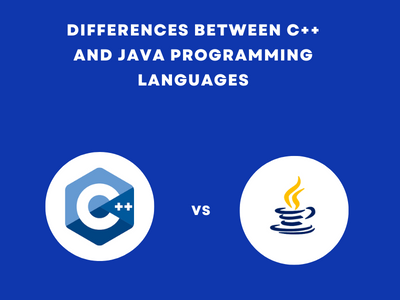
Let's look at the fundamental differences between C+ and Java.
1. Language Builds And Ecosystems
C++ was introduced in 1985 as a front end to C compilers, much like TypeScript compiles to JavaScript. Most modern C++ processors compile to native machine code. A few argue that C++ compilers impede portability and need overhauls for new target designs. But C++ code runs on almost every processor platform.
On the other hand, Java was first published in 1995 and did not compile straight-to-native code. Java instead generates bytecode, an intermediate binary form that executes on the Java Virtual Machine (JVM), meaning the Java compiler output needs a platform-specific native executable to run.
C++ and Java are C-like languages because their syntax is related to C. Their ecosystems are the most notable difference: C++ may call into libraries written in C or C++ and as an operating system's API. In contrast, Java is suitable for Java-based libraries.
Programmers may use the Java Native Interface (JNI) API to access C libraries in Java. However, it is error-prone and needs some C or C++ code. Because C++ is a lower-level language, it interfaces with hardware more readily than Java.
2. Generics, Storage, and More
In certain circumstances, the choice between C++ or Java is simple. Except if the app is a game, native Android applications should use Java. For the best possible real-time animation, most game creators use C++ or another language; Java's memory management sometimes creates delays during gameplay.
However, this debate does not cover cross-platform programs that are not games. In this scenario, neither C++ nor Java are viable since they are too complex for effective GUI development. For high-performance projects, it's ideal to write C++ modules to handle the heavy lifting and a more developer-friendly language for the GUI.
Let's compare further. C++ or Java, which is best for your firm?
|
Feature |
C++ |
Java |
|
Standardized build and package management |
No |
Maven |
|
Global mark-and-sweep |
Garbage collection |
Not required |
|
Compilation to Java bytecode |
No |
Yes |
|
Beginner-friendly |
No |
Yes |
|
Direct interaction with low-level operating system APIs |
Yes |
Requires C code |
|
Compilation to native executable |
Yes |
No |
|
Runtime performance |
Best |
Good |
|
Reference-counting smart pointers |
Yes |
No |
|
Direct interaction with Java libraries |
Through JNI |
Yes |
|
Latency |
Predictable |
Unpredictable |
|
Direct interaction with C libraries |
Yes |
Requires C code |
|
Stack memory allocation |
Yes |
No |
Besides the features discussed in the table, we'll look at object-oriented programming (OOP) features. Some of these include multiple inheritance, generics/templates, and reflection. Both languages allow OOP. Java needs it, and C++ supports it with global functions and static data.
3. Runtime Speed
Though Java has good runtime speed, C++ still dominates. The reason is that manual memory management outperforms trash collection for real-world applications. The JIT compilation allows Java to surpass C++. In some cases, C++ wins most non-trivial cases.
Compared to C++'s limited usage of heap allocations, Java's standard memory library overworks the garbage collector with its shares. However, Java is still quick and ought to be enough unless lag is a major problem, like in games or applications with real-time limitations.
4. Reflection
In Java, you can find structural information at runtime. This feature is called reflection. It is like putting a mirror up to an item to view what's within. However, C++ lacks complete reflection. And modern C++ provides runtime type information (RTTI).
RTTI can recognize particular object types at runtime. Yet, it has no access to information like the object's members.
5. Memory Management
One significant difference between C++ and Java is memory control. It has two approaches; manual and automated. In manual, programmers must monitor and release memory manually. For automatic, the computer analyzes which classes are still usable for recycling unused memory. One instance is trash collection in Java.
Java needs garbage-collected memory, which makes memory management easier than the manual method. And it eliminates memory-releasing mistakes, which can lead to security issues. C++ does not support automatic memory management. However, it supports a type of trash collection known as smart pointers.
Smart pointers leverage reference tracking. So when used right, both are secure and highly functional. Also, C++ has destructors, which tidy up or release resources when an object destroys.
6. Use Cases
C++ is driving millions of gadgets we use nowadays. They range from game creation to scientific applications and everything in between. You may find C++ almost anywhere, from computers to mobile phones and game consoles to space travel. With C++, you may create;
- Game development. Examples are StarCraft, WarCraft, and Counter-strike.
- Databases like MySQL and MongoDB
- Internet browsers. It includes Google Chrome, Safari, Mozilla Firefox, and Opera.
- Operating systems such as macOS and Windows, iOS
- Scientific studies like NASA and CERN
- Virtual Reality (VR), such as Unreal Engine
- Machine learning, such as TensorFlow
- Special effects on movie production
- Financial technology. It includes banking, trading, and financial modeling.
- Google Search Engine
- Telecommunications like the internet, telephone, and telecom infrastructure
- Game engines include Unreal Engine, Xbox, PlayStation, and Nintendo Switch.
- Internet of Things (IoT) devices include televisions, cars, smartwatches, medical devices, appliances, and more.
- Flight software, such as commercial jets and military aircraft
On the flip side, software engineers, web developers, and Java devs use Java for many complex projects. Java is standard for gaming, websites, and applications. It powers millions of mobile phones, television sets, workplace software, and other devices worldwide. With Java, you may create;
- Chatbots
- Secure web applications
- Mobile apps on Google Os and Android
- Cloud applications - file-sharing, email, and virtual machines
- Android games - Minecraft
- Internet of things (IoT) devices - These connect devices to machines in industries like supply-chain management and healthcare.
- Scientific apps like research and healthcare computation, data storage, and automation
Next, we will dive deeper into some of the crucial applications of C++ and Java that everybody should know:
C++ Or Java For Data Science
1. C++
Despite its lightning-fast performance and wide mainstream popularity, C++ is not a common choice for data science. The simple reason may be a question of productivity versus performance.
C++ would be ideal for building low-level efficient machine learning algorithms for increased output efficiency.
2. Java
Java is among the most common programming languages on the planet. It's an open-source, object-oriented programming language noted for its superior efficiency and speed. The Java ecosystem supports an infinite range of advanced technologies, which includes application software, websites, and others.
There are several benefits to using Java as your primary data science language. Many businesses will value integrating data science-compiled code into their current codebase effortlessly. And you realize that Java's speed and type safety are substantial benefits.
Java is a programmed high-performance general-purpose language. As a result, it is well conducive to building fast ETL production code. Not only that, it is suitable for computationally expensive machine learning algorithms.
Our Verdict: Java
C++ Or Java For Web Development
1. C++
C++ is a middle-level programming language introduced in 1980 as an extension of Objective C. It is a primary language that is highly helpful and simple to learn. C++ has object-oriented development, exception management, and type-checking capabilities to complement Objective C.
This programming language supports OOP concepts such as abstraction. It has a robust standard library. Also, it is fast and effective for compiling mechanisms. However, it has no automated garbage collection.
2. Java
Sun Microsystems created Java in 1990 to enhance the C++ programming language. It designs with the Write Once, Run Anywhere philosophy in mind. Oracle now owns it and is one of the most extensively used backend languages for website development.
Java adheres to OOP principles and has feature-rich open-source libraries. Plus, it is an easy language to learn because of its modest learning curve and excellent productivity. Unlike C++, Java enables multi-threading. And it allows several threads to run simultaneously, resulting in maximum CPU use. With just a few code modifications, it will allow both horizontal and vertical scaling.
Our Verdict: Java
Java's flexibility to interface with many platforms makes it ideal for creating massive web applications. Also, you may use Java web development to access services such as peer-web services, database servers, and backend services. There are several Java platforms available for web development.
C++ Or Java For Game Development
1. C++
Game development is time-consuming and requires using a programming language with specific features. That's where C++ comes in. This programming language outperforms other game development languages.
C++ maintains excellent performance because it compiles down to machine code. As a result, C++ applications may execute at almost the machine's speed. On the other hand, higher-level languages need translation into machine code. While C++ code takes somewhat longer to develop than high-level programs. It is a reasonable sacrifice for efficiency.
C++ programming language excels in memory usage. Thus, it allows for greater control, flexibility, and optimization of game resources. It is a programming language that works with common game engines such as Unity and Unreal. Lastly, C++ is functional with low-level C and assembly language. Hence, it allows game creators to deal with hardware-level components more easily.
2. Java
Java is a user-friendly language for mobile apps and gaming. If you're new to coding, you can start with Java and develop, execute, and debug code sooner than with many other programs.
A game programmed with Java will most likely run on a virtual machine, a software-based computing system operating independently of existing host systems. Virtual machines make it easier to produce and distribute games and other software and to expand them as they evolve.
The programming language enables multi-threading, allowing two or more instruction sets to operate concurrently. Game creators frequently preferred separate threads for distinct operations, such as graphics rendering and gameplay logic. Also, Java has socket programming, which enables two-way communication with servers. With this, developers can create multiplayer games without the use of extra technologies.
Our Verdict: C++
Java is a flexible programming language used by small game development organizations. It has been used to power some of the world's most popular iOS and Android apps, including Minecraft and Mission Impossible III. Because Java is a cross-platform language, it can operate on almost any system, including Microsoft and Linux.
However, C++ is an outstanding programming language for game development. Its low-level language components allow you to manipulate hardware while providing a highly interactive gaming experience. While higher-level languages like Java are faster to write in, they lack the versatility and speed of C++.
C++ Or Java For Machine Learning
1. C++
A concise summary of C++ would be "adaptable, powerful, and challenging to use." The language has been available for a long time and provides a solid and trustworthy base for various gadgets. It is also acclaimed for its speed, making it a tool of choice for game developers and programmers who want their applications to run quickly.
Despite not being a prevalent programming language for machine learning, C++ provides several benefits. C++ is efficient and provides control. It allows control of single resources such as the CPU and memory management, can change algorithms and has various libraries.
2. Java
Java is well-known for corporate programming and backend systems. It provides platforms for graphical user interface-based machine learning activities. The Java Virtual Machine (JVM) enables developers to write platform-independent code. Java apps are scalable and created quickly.
Fink, Hadoop, Hive, and Spark are all prominent data science frameworks developed in Java. Java is used to write the production codebases. Because various software, apps, and the company's infrastructure are created with Java, connectivity and compatibility problems are eliminated.
Our Verdict: Java
The third most popular programming language on GitHub is Java. This object-oriented computer program evolved from C and C++. As a result, it removes C++ mistakes. It's also straightforward to learn, despite being a high-level language with basic syntax. Java code comprises methods and classes. Because of its portability, it is one of the most significant programming languages.
However, Python is more famous for machine learning as it surpasses Java, C, C++, and C#. It is now the most in-demand programming language on GitHub. And it uses one of the most natural languages with a simpler syntax.
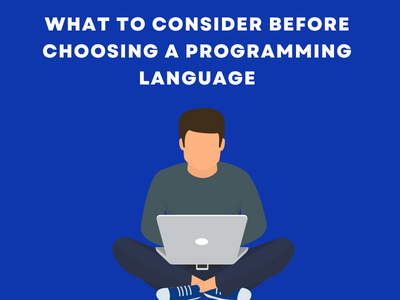
The following are the critical variables we consider while choosing the best programming language for each project:
1. Application Type
The kinds of applications you're creating—web apps, mobile applications, embedded firmware, etc.—greatly impact the language chosen. One may create various apps on multiple platforms using general-purpose programming languages like Java, JavaScript, Python, and C#.
In some cases, a particular language performs better. To design a native iOS or Android app, for instance, you need to be proficient in Swift or Objective-C, and if you're dealing with embedded firmware, C or C++ knowledge is essential.
2. Application Size
The scope and size of a project are key factors in selecting the technological stack. For instance, you may need PHP or C# for small tasks like simple marketing sites, portfolio presentations, and web application forms to collect data.
However, medium-sized projects with several layers, features, and connections, such as e-commerce sites, internal corporate systems, and IoT solutions, may benefit from a broader programming language like Java.
3. Maintainability
Every language and software stack has its ecosystem of libraries, along with vendor support for those libraries. To ensure that your choice is current and will keep you updated for some time, consider the trend and upgrade cycle times.
Suppose you want to recruit an internal development team to manage your technological stack. In that case, the availability and skill of development talent will influence your maintenance expenses in your location. For instance, hiring Java engineers is more straightforward in the Midwest than hiring Ruby, Python, or PHP developers. Consider this while choosing a programming language to ensure the long-term viability of the codebase.
C++ Or Java: Which Is Best For Your Project?
One can write many types of programs in Java and C++. Ultimately, C++ is used for software that needs manipulation at the "hardware level." C++ is closer to machine language than Java, making it ideal for programs that need to run quickly and require direct access to your computer's memory, hard drive, CPU, or other components. Often, C++ is used with gaming applications that need speed.
Java can manipulate hardware, but it's not commonly used for low-level programming because it's a "secure" language. People prefer Java for higher-level apps because it does not allow you to execute specific functions to secure the PC.
Since Java is the backbone of Android development, it is the go-to language for building mobile applications exclusively for Android. In addition, people use Java for online and desktop applications, including server-side applications. Because Java is more recognized and adaptable, it is easier to locate a Java developer than for a "harder" language like C++.
Furthermore, C++ works for almost everything, but it is only sometimes vital. Java is usually sufficient for your project and can be much more effective than other languages.
In addition, one excellent tip for deciding on the best language for your project if you're unsure about its complexity is to upload your project online and ask developers for opinions. Their expertise can guide you to the correct language for your project.

Robert is a co-founder of Ideamotive. Entrepreneur, who with passion spreads digital revolution all around the internet. Mentor and advisor at startup accelerators. Loves to learn and discover new business models.
View all author postsTrending articles
21 Dazzling Examples of Mobile App UI Design to Inspire You in 2023
Michał Pruciak 7 min read
MedTech vs HealthTech vs BioTech: What Are The Differences?
Michał Pruciak 7 min read
10 Business Applications of Neural Network (With Examples!)
Michał Pruciak 4 min read
10 Irresistible Examples of Web Design Best Practices for 2023
Adam Kozłowski 7 min read
21 Amazing Examples Of React Web Development
Michał Pruciak 14 min read

Looking for a specific type of software development service?
Rated 4.8 / 5.0 by clients from various industries and locations.

